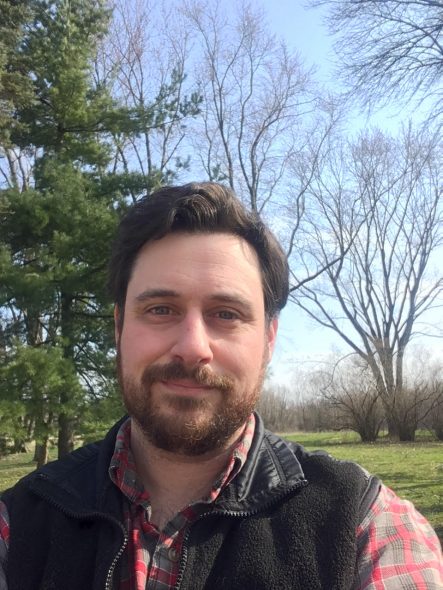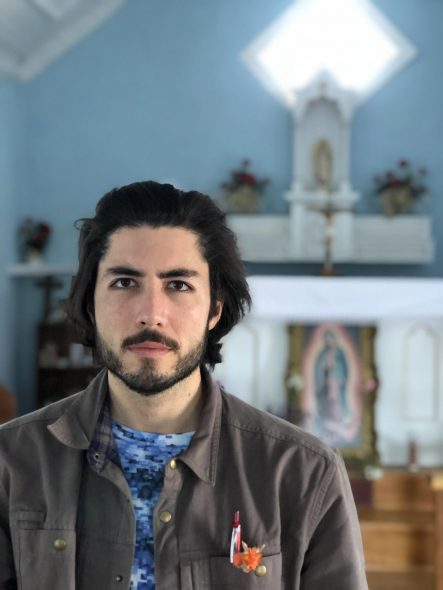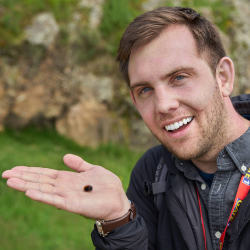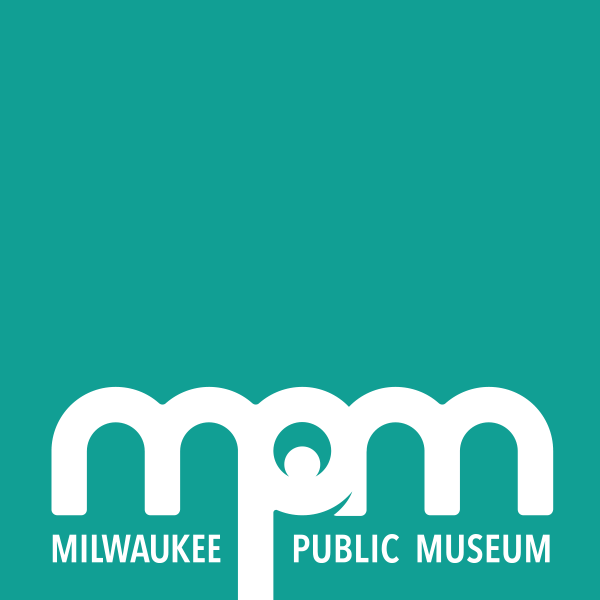Milwaukee Public Museum Hires Three Additional Scientific and Research Curators to Lead Botany, History and Anthropology, and Zoology Departments
Curators to bolster MPM’s scientific research capabilities, overseeing collections, securing grants to support research and producing scientific publications to help increase understanding of our world’s natural and cultural diversity
MILWAUKEE — The Milwaukee Public Museum (MPM) is pleased to announce the hiring of three curators who will expand research capabilities at MPM: Christopher D. Tyrrell, Ph.D, Aaron R. Atencio, Ph.D, and Nicolas J. Dowdy, Ph.D, effective immediately. In their roles, Tyrrell, Atencio, and Dowdy will be instrumental in continuing to integrate science and research in line with the core vision, mission and values of MPM.
“As a research-based educational institution charged with preserving and protecting more than four million objects and specimens from across Wisconsin and around the globe, it is imperative to have a team of the best researchers in the nation,” said MPM President and CEO Dr. Ellen Censky. “We are thrilled to welcome these Drs. Tyrell, Atencio and Dowdy, who bring past experiences and education that will amplify and enrich the mission of MPM.”
ABOUT THE CURATORS
Christopher D. Tyrrell, Ph.D.
Research Curator, Botany
Hometown: Hales Corner, WI
Tyrell is not entirely new to MPM, having worked at MPM from 2014 to 2021. He returns to the Museum from a position within the Wisconsin Department of Natural Resources, as MPM’s Research Curator for Botany. In this role, Tyrell will be responsible for the discovery and description of new plant species. He will also oversee the day-to-day operation of the museum’s collection of 200,000 dried, preserved plant specimens and lead the effort to digitize the collections – expanding access to and understanding of our planet’s natural diversity.
“The science of my research at MPM is discovering, describing and protecting plant species before they are lost forever,” Tyrrell said. “This work informs our decisions about the use and preservation of the plants that humans need for food, medicine and materials. I like to remind people that we don’t need to ‘save the planet,’ we actually are trying to save our species from extinction.”
Aaron R. Atencio, Ph.D.
Director of Cultural Collections, History and Anthropology
Hometown: Tulsa, OK
Atencio’s research at MPM will focus on the universal human action of storytelling. By exploring the photo archives and cultural specimens in the Museum’s collections, Atencio will examine dynamics of visual communication and narratives to explore the richness and complexity of the human condition. In this way, Atencio will help explore the meaning associated with artifacts.
“My work focuses on researching visual systems–art, votive materials, ritual and ceremony– created by different cultures,” Atencio said. “Culture makes us human, and most, if not all, culture is buttressed upon stories. If you can tell a good story, you can communicate ideas. We are all connected in a cultural web, so the stories that MPM narrates are those reflecting our interconnectedness.”
Nicolas J. Dowdy, Ph.D.
Head of Zoology and Director of Collections Informatics
Hometown: Phoenix, AZ
Prior to accepting his current position as Head of Zoology and Director of Collections Informatics, Dowdy conducted postdoctoral research at MPM as a research fellow who secured grant funding from the National Science Foundation. In his current role, Dowdy will oversee the maintenance, improvement and digitization of Zoology collections and will oversee collections- and research-related efforts to bolster the digital infrastructure of the Museum – developing and supporting new digital tools. Dowdy will also lead cutting-edge research that seeks to represent what Wisconsin and Milwaukee are today – a global hub of research and innovation that is generating and sharing new knowledge about our beautiful and wondrous planet.
“We have material at MPM that even the largest and most well-known museums in the world do not have,” said Dowdy. “It is a privilege to care for these specimens and collections. This kind of access also makes the research we are able to do here at MPM very unique.”
The new curators have already begun their work at the Milwaukee Public Museum. They continue to conduct scholarly research and produce scientific publications, secure external grants to support research, participate in leadership of local, national, and international professional societies, and oversee collections and ensure the best standards in care are used. This is an exciting next step for the museum and the continued expansion of scientific research.
About the Milwaukee Public Museum
The Milwaukee Public Museum is Wisconsin’s natural history museum, welcoming over half a million visitors annually. Located in downtown Milwaukee, the Museum was chartered in 1882, opened to the public in 1884, and currently houses more than 4 million objects in its collections. MPM has three floors of exhibits that encompass life-size dioramas, walk-through villages, world cultures, dinosaurs, a rainforest, and a live butterfly garden, as well as the Daniel M. Soref Dome Theater & Planetarium. MPM is operated by Milwaukee Public Museum, Inc., a private, non-profit company, and its facilities and collections are held in trust and supported by Milwaukee County for the benefit of the public.
NOTE: This press release was submitted to Urban Milwaukee and was not written by an Urban Milwaukee writer. While it is believed to be reliable, Urban Milwaukee does not guarantee its accuracy or completeness.
Mentioned in This Press Release
Recent Press Releases by Milwaukee Public Museum
First Milwaukee Public Museum Collections Packed, Ready to Move
Feb 27th, 2024 by Milwaukee Public MuseumCollections staff begin packing off-view History collections as momentum builds toward Future Museum
Milwaukee Public Museum to Host Canned Food Exhibition CANstruction
Jan 23rd, 2024 by Milwaukee Public MuseumSculptures are designed and built by teams of local architects and engineers; food items are donated to area pantry following exhibition


























